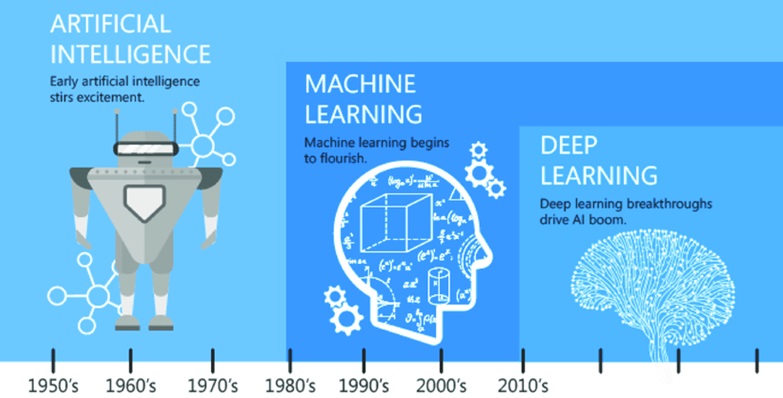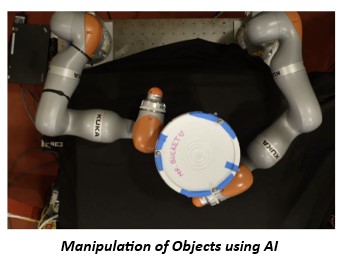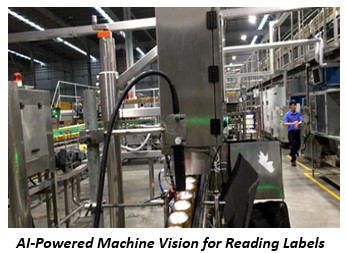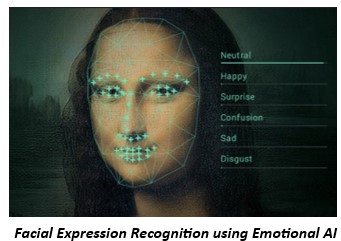The Dawn of Artificial Intelligence
-TRANSFORMING THE WORLD ONE ALGORITHM AT A TIME
BY Eng Ovindu Virajith Medagedara
The dawn of the 21st century has been marked by rapid technological advancements, with Artificial Intelligence (AI) at the forefront. This revolutionary field, once bound only to the realms of science fiction, is now an integral part of our daily lives, driving innovations across industries and redefining the boundaries of what machines can achieve. As we explore deeper into the AI-driven era, it's essential to explore its various impacts on society, economy, and our personal lives.
Artificial Intelligence, in its most simple form, is the effort to replicate or simulate human intelligence in machines. Throughout history, stories and myths often feature non-living objects coming to life. Today, AI has become the modern manifestation of our long-time interest in such. Also, AI covers a range of subfields, from robotics to machine learning, all aimed at creating systems capable of tasks that, until recently, were thought to require human intelligence. These tasks include problem-solving, recognizing patterns, understanding languages, and making decisions. The concepts of AI were first introduced in the mid-20th century when pioneers such as Alan Turing posed the question, "Can machines think?" This led to the development of the “Turing Test”, a measure of a machine's ability to exhibit intelligent behavior identical to that of a human.

The Evolution of AI
Over the decades, AI has seen periods of intense interest followed by setbacks, known as "AI winters." However, the persistence of researchers, combined with exponential increases in computational power and data availability, has led to the current state in AI research and applications.
“Deep Learning”, a subset of machine learning, has been a revolutionary breakthrough. By following the neural structures of the human brain, deep learning algorithms process vast amounts of data, refining their operations as they go. Another significant advancement is “Generative Adversarial Networks” (GANs), which pit two AI models against each other to produce new, synthetic instances of data. Also, "Reinforcement Learning" is a method where the software takes actions to get the most rewards over time, and it is useful in fields such as gaming and robotics. It is inspired by behavioral psychology.
 The applications of AI span across different sectors. In fields under healthcare, algorithms assist in diagnosing diseases, sometimes with accuracy surpassing human experts. The finance sector sees AI-driven robot-advisors providing investment advice. In entertainment, streaming services use AI to recommend content tailored to individual preferences. However, with these advancements come challenges. The rise of deepfakes, AI- generated videos that can convincingly depict real people saying or doing things they never did, poses threats to information integrity. Additionally, as AI systems become more integrated into critical infrastructures, the requirement for proper cybersecurity procedures becomes paramount.
The applications of AI span across different sectors. In fields under healthcare, algorithms assist in diagnosing diseases, sometimes with accuracy surpassing human experts. The finance sector sees AI-driven robot-advisors providing investment advice. In entertainment, streaming services use AI to recommend content tailored to individual preferences. However, with these advancements come challenges. The rise of deepfakes, AI- generated videos that can convincingly depict real people saying or doing things they never did, poses threats to information integrity. Additionally, as AI systems become more integrated into critical infrastructures, the requirement for proper cybersecurity procedures becomes paramount.
 The rapid generation of AI has given rise to a host of ethical dilemmas. The potential for job displacement, especially in sectors like manufacturing, raises economic and social concerns. Moreover, the increasing use of AI in surveillance, both by state and non-state entities, poses significant privacy concerns. Additionally, the ease with which AI can produce and spread false information is a serious threat to the truthfulness of public conversations and the health of democracy.
The rapid generation of AI has given rise to a host of ethical dilemmas. The potential for job displacement, especially in sectors like manufacturing, raises economic and social concerns. Moreover, the increasing use of AI in surveillance, both by state and non-state entities, poses significant privacy concerns. Additionally, the ease with which AI can produce and spread false information is a serious threat to the truthfulness of public conversations and the health of democracy.
 Looking forward, the fusion of AI with other emerging technologies, such as quantum computing and biotechnology, promises to unlock new horizons. “Emotion AI”, which seeks to give machines the ability to read and respond to human emotions, could revolutionize industries from customer service to mental health. Decentralized AI, utilizing blockchain technology, might offer more transparent and proper AI solutions.
Looking forward, the fusion of AI with other emerging technologies, such as quantum computing and biotechnology, promises to unlock new horizons. “Emotion AI”, which seeks to give machines the ability to read and respond to human emotions, could revolutionize industries from customer service to mental health. Decentralized AI, utilizing blockchain technology, might offer more transparent and proper AI solutions.
In conclusion, Artificial Intelligence is not just a tool or a technology; it's a pivotal force shaping the trajectory of humanity. As we navigate through this unexplored domain, a balanced strategy is essential. Welcoming the substantial potential while recognizing the challenges will ensure that AI becomes a facilitator for advancement, prosperity, and the collective well-being of human civilization.
References & Image Sources
https://www.researchgate.net/publication/348174488_Application_of_Artificial_Intelligence-Based_Technologies_in_the_Healthcare_Industry_Opportunities_and_Challenges
https://news.mit.edu/2023/ai-technique-robots-manipulate-objects-whole-bodies-0824
https://kavita-ganesan.com/ai-in-manufacturing-examples/
https://medium.com/mlearning-ai/emotion-ai-facial-expression-recognition-with-convolutional-neural-network-and-visualization-with-fbfbc5a5819a
 Ovindu Virajith Medagedara is currently a Mechatronics Engineering undergraduate at the Sri Lanka Institute of Information Technology. He was a former Mechatronics Engineering Intern at Lankem Ceylon PLC, Sri Lanka. He is also a Student Affiliate Member of Institute of Mechanical Engineers (IMechE).
Ovindu Virajith Medagedara is currently a Mechatronics Engineering undergraduate at the Sri Lanka Institute of Information Technology. He was a former Mechatronics Engineering Intern at Lankem Ceylon PLC, Sri Lanka. He is also a Student Affiliate Member of Institute of Mechanical Engineers (IMechE).
